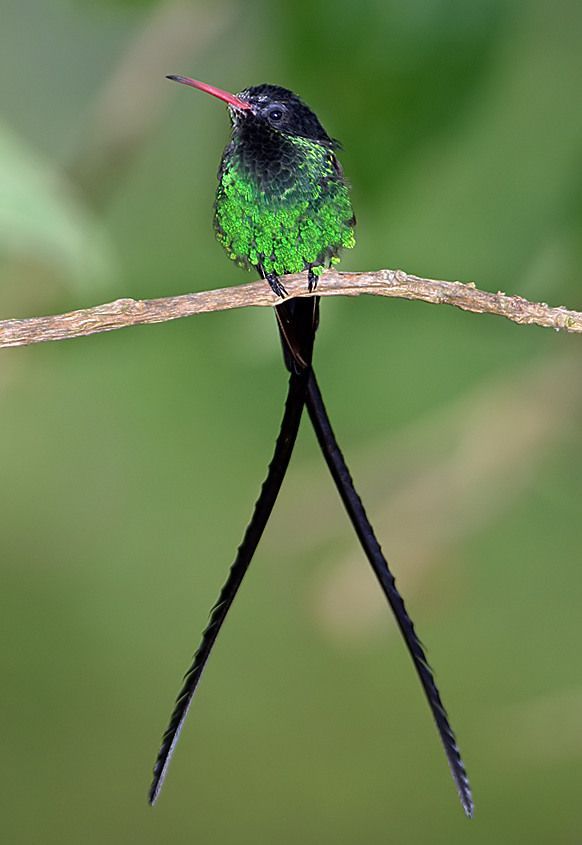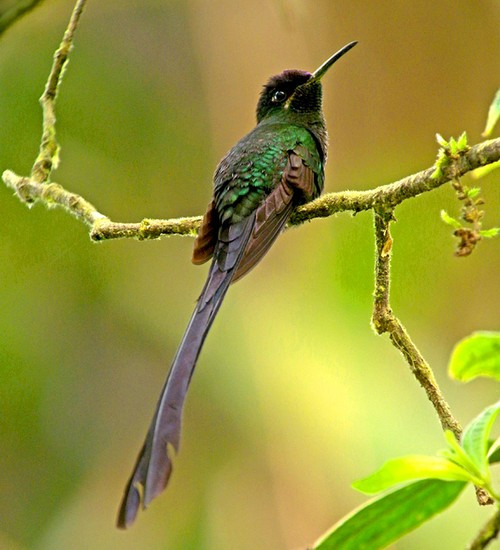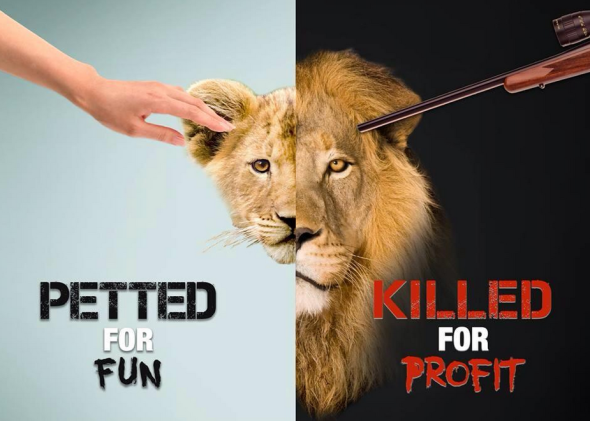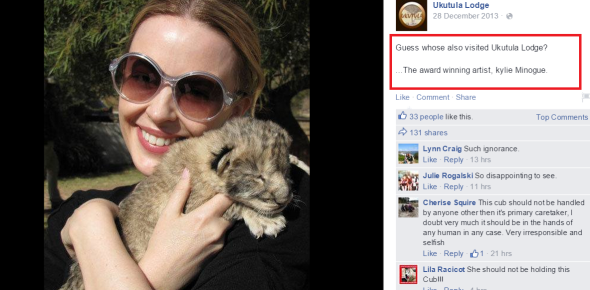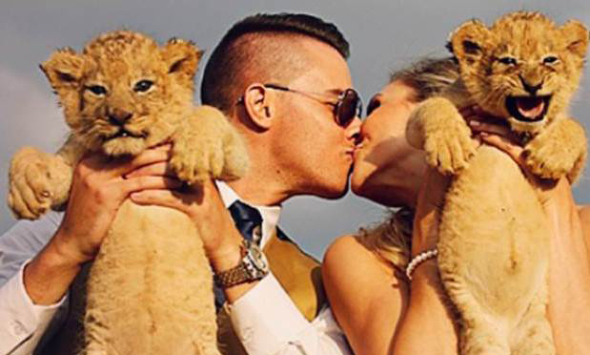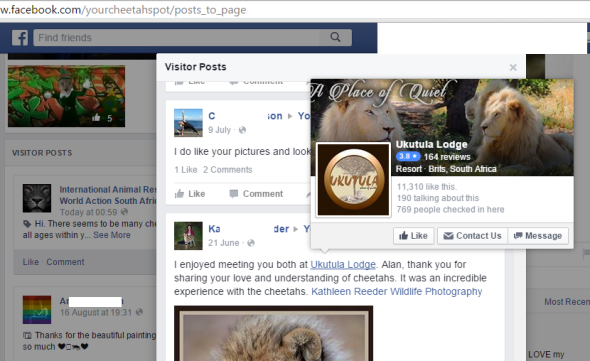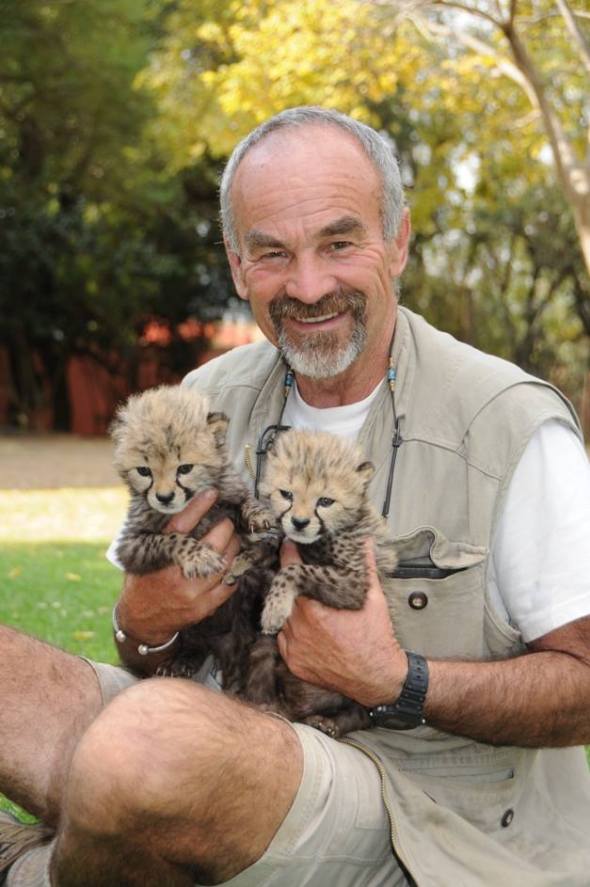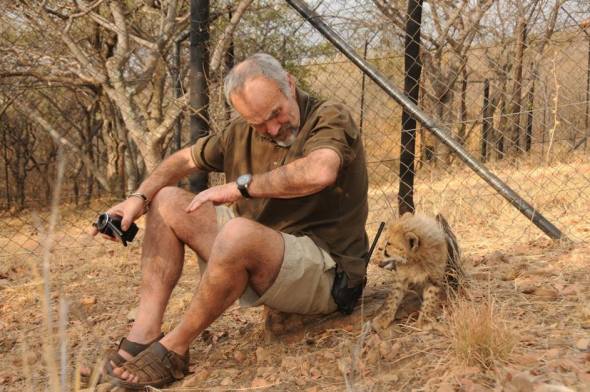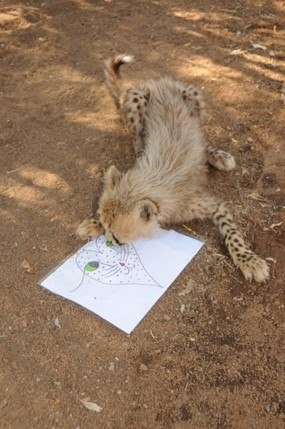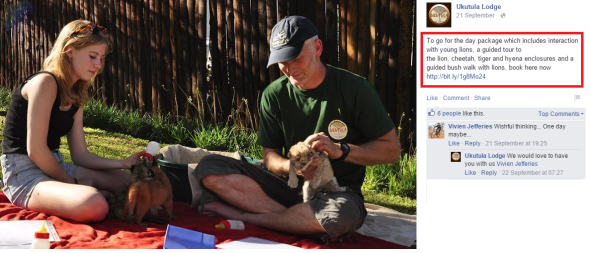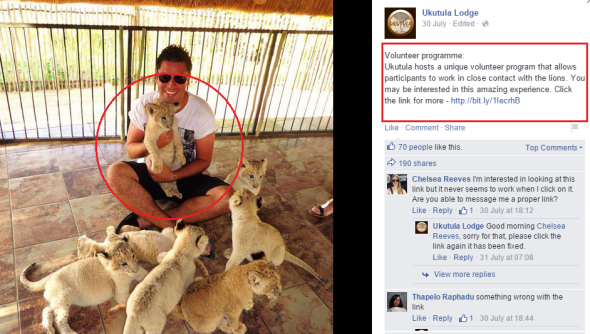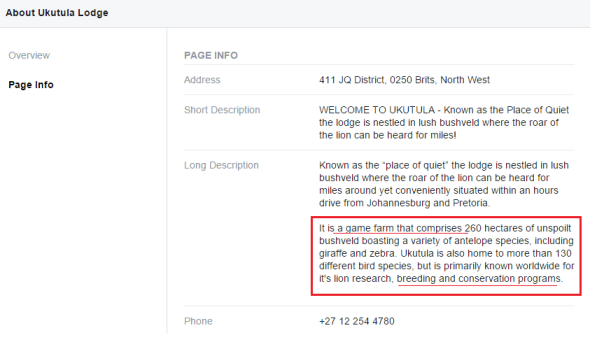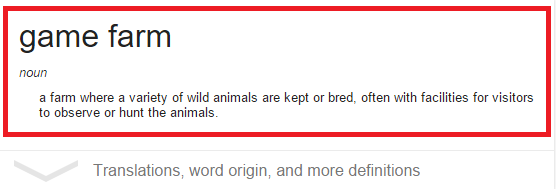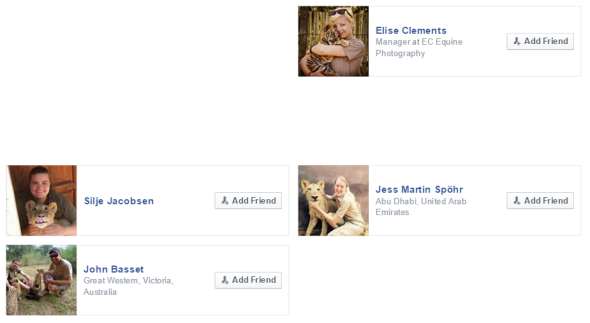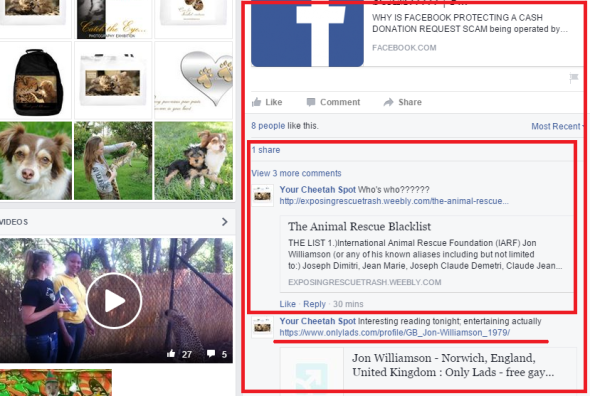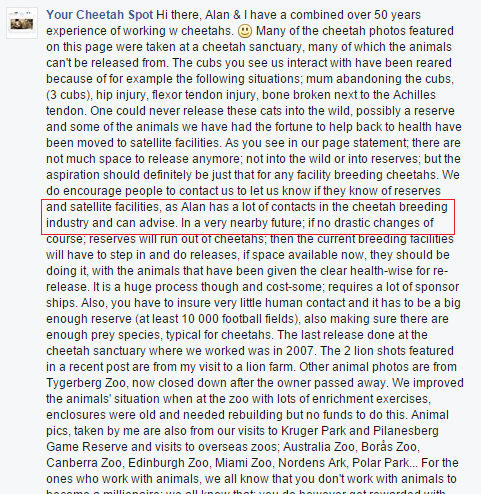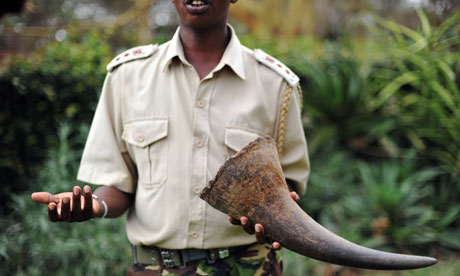Endangered Species Monday: Hylonympha macrocerca
Endangered Species Monday: Hylonympha macrocerca
This Monday’s Endangered Species Post (ESP) watch I take a rare glimpse into the life of Hylonympha macrocerca, commonly known as the Scissor Tailed Hummingbird. Identified in 1873 by Dr John Gould FRS September 1804 – 3 February 1881) whom was an English ornithologist and bird artist. He published a number of monographs on birds, illustrated by plates that he produced with the assistance of his wife, Elizabeth Gould, and several other artists including Edward Lear, Henry Constantine Richter, Joseph Wolf and William Matthew Hart. He has been considered the father of bird study in Australia and the Gould League in Australia is named after him. His identification of the birds now nicknamed “Darwin’s finches” played a role in the inception of Darwin’s theory of evolution by natural selection. (Image: Scissor Tailed Hummingbird)
Listed as (endangered) this remarkable specimen was listed as threatened back in 1988. Since this time little conservation efforts have been seen to improve the species overall status within the wild of which extinction is incredibly likely. From 1994 to 1996 the species was listed as critically endangered. From the start of the Millennium conservation efforts did improve the wild status of the hummingbird to (vulnerable), unfortunately from 2008 to date the species has been re-listed as endangered again. From my own evaluations of the birds current threats and shrinking habitat, extinction will occur within the next five to ten years, unless conservation efforts improve, funding increases and dangers disperse soon.
Endemic to Venezuela and Bolivia evidence has shown that overall population sizes are decreasing very rapidly. The population trend when last evaluated back in 2012, showed around 10,000 to 19,900 ‘individuals’ within the wild. This equates to exactly 6,000 to 13,000 ‘mature individuals’ remaining, which is rounded to 6,000 to 15,000 ‘birds in total’. The Scissor Tailed Hummingbird specie inhabits lower and upper montane humid forest, where it has been recorded at 800-1,200 m on Cerro Humo, and 530-920 m further east.
In primary forest, the specie feeds mainly at bromeliad flowers and on their insect inhabitants, whereas in secondary forest, feeding is associated with the shrubs Heliconia aurea and Costus sp. Although it is regularly seen feeding on Heliconia in open areas it may nevertheless be dependent on the availability of pristine forest nearby. It also hawks insects from exposed perches. There may be seasonal movements.
Major Threats
Listed on Cites Appendix II (Convention on International Trade of Endangered Species wild flora and fauna), increases in cash-crop agriculture, especially the cultivation of “ocumo blanco” (Xanthosoma sagittifolium) and “ocumo chino” (Colocasia esculenta), since the mid- to late 1980s have resulted in some uncontrolled burning and forest degradation. Cerros Humo and Patao have been worst affected, with the east of the peninsula fairly undisturbed.
Since it is an understorey inhabitant, removal of understorey vegetation for coffee and cacao cultivation is likely to lead to reduced population density. It is considered nationally Endangered in Venezuela, and has been recognized as a “high priority” species, amongst the top dozen priorities for bird conservation in Venezuela.
Image: Scissor Tailed Hummingbird.
Occasionally the species is misidentified as the Red-billed streamertail which is also commonly known as the scissor-tail or scissors tail hummingbird. However its fairly easy to distinguish between the two when viewing online or within books. This particular species (in question) is not native to Jamaica, and one can quite easily differentiate between the two. The Scissor Tailed Hummingbird has obviously acquired its name due to its unique scissor tailed rump feathers, whereas the Jamaican Red-billed streamertail doesn’t host the same features but more as explained - streamer like rump feathers.
Sadly as explained due to increasing threats we will lose this bird unless conservation efforts improve dramatically and dangers subside. However this is unlikely to occur. The Scissor Tailed Hummingbird will be yet another species of bird added soon to the extinction list of amazing birds, that we humans have destroyed. The video below depicts a female Scissor Tailed Hummingbird within the Venezuela wild.
Thank you for reading.
Dr Jose C. Depre.
Environmental and Botanical Scientist.
UKUTULA: TOURIST AND STUDENT BOYCOTT.
STUDENT AND TOURIST - BOYCOTT
International Animal Rescue Foundation Africa’s Board of Directors have decided to call for an immediate tourist and student boycott of Ukutula Lodge & Lion Park (Ukutula Lodge) situated at the address below with immediate effect. Please share this data onto all friends, family, work colleagues and, anyone that you know who’s planning on visiting the Ukutula Lodge & Lion Park (Ukutula Lodge) in South Africa:
Ukutula Lodge & Lion Park (Ukutula Lodge) please click the links below for GPS and Sites.
26 of the Farm Klipkop,
JQ411,
Brits, 0250,
South Africa
GPS UKUTULA LODGE AND LION PARK
UKUTULA WEBSITE
We the organisation please encourage all members of the public to visit TRIP ADVISER and UKUTULA SOCIAL MEDIA pages and pre-warn all members of the public and provide a ONE STAR rating not to visit this lodge. This farm lodge has categorically lied to the public, are selling animals onto to hunt, and haven’t answered a single question put to them since 2013. Today 2015 after the lodge yet again tried to fool the public into airing “a recorded and cut version of the BLOODLIONS.ORG film showing what (they want to show) Blood Lions made the following statement.
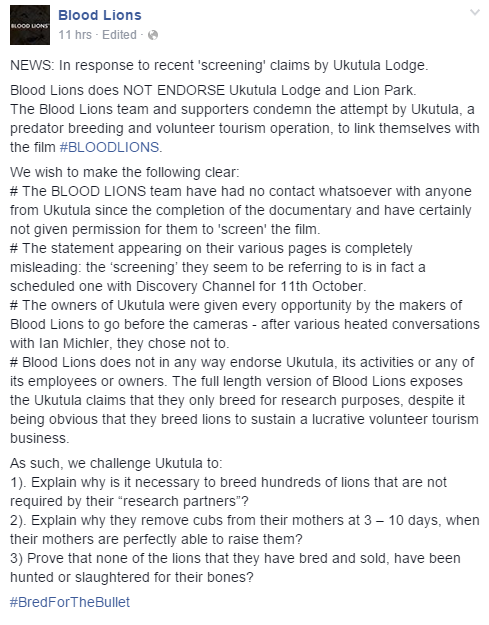
We the [organisation] have thought long and hard in relation to issuing a boycott with regards to Ukutula and their unprofessional practices operating under the guise of species research. International Animal Rescue Foundation Africa has taken in to consideration all aspects of the boycott, the implications this boycott could have on captive breeding and monetary loss. However had there not been evidence that clearly shows trade of Lions and other animals to silent partners, organisations and farms then we’d have not called for a mandatory boycott. Vasts sums of monetary income are coming into this lodge from private buyers of Lions, Cheetahs, Tigers and other animals. The farm doesn’t require funding from foreign tourists that are being lied too, brainwashed and fed misinformation, therefore a boycott must commence to shut this practice down.
Tourists and students that visit the Ukutula Lodge and Lion Park travel from the following countries: Germany; France; Finland; Holland; Denmark; Belgium; Norway; Serbia; Romania; Sweden; United States; Canada; Italy; Australia; New Zealand; Czech Republic; South Africa; Namibia; Zimbabwe; Botswana; Ireland; Portugal; Greece; Thailand; China; Vietnam; Brazil; Peru; Argentina; Mexico; Hawaii; India and Taiwan. There are likely many other countries that tourists and students are encouraged to visit too. However the vast majority are coming in from Holland, Germany, France, United Kingdom, United States, South Africa and Belgium.
Further boycotts will be called for and all boycotts with data and contact details will be posted onto our main environmental news and media site. Boycott information will be communicated to our education and youth team, as well as being communicated to all 6.1 million supporters, 400,000 of which are aligned to our Africans organisation. Any organisation or company that is aligned to Ukutula and is either promoting their services, establishment, funding their team or is actively involved in pseudo education and conservation will also fall into the international boycott too.
Environmental News and Media have identified further third parties that are actively encouraging the promotion of UKUTULA Lion and Game Lodge too identified hereto: Pieter and Brenna, Hartbeespoort and the Crafters Market of which Your Cheetah Spot company are trading images of cubs and adults to the public. We suspect that these images and other crafts sold via the company through the market via felid exploitation are providing a source of income to both the company and Ukutula. This practice is unethical and encouraging the deaths of our wildlife. The University of Pretoria are also supporting the UKUTULA Lion and Game Lodge too. We please ask that international students refrain from visiting this university that are sponsoring the work of UKUTULA. Should we locate any further companies or teaching establishments that are promoting the UKUTULA lodge we’ll be implementing them within our daily news netter ebullition and hereto on this site.
This entire game lodge is not under any circumstances teaching practical or professional conservation. What they are doing is selling animals onto silent and unknown buyers, and promoting/encouraging petting. International Animal Rescue Foundation Africa will furthermore expose tourists, students and anyone that ignores our advice and that of third party NGO’s and investigative teams.. International Animal Rescue Foundation Africa’s role is to now shut this entire establishment down. Alternatively the establishment can immediately stop their pseudo practices and continue “professional conservation” while answering our questions.
WHY ARE WE CALLING FOR A TOURIST AND STUDENT BOYCOTT OF UKUTULA?
International Animal Rescue Foundation Africa are calling for boycotts for the reasons set out hereto:
1. Promotion and interaction of felid cubs. (petting)
2. Evidence that proves cats and other animals allegedly used for research that allegedly live their life out on the grounds, being sold to private and silent buyers, organisations and farms.
3. Evidence that proves the lodge is actively involved within the hunting industry be it directly or indirectly.
4. Failure to answer straightforward and polite questions in relation to the above from ourselves, leading big cat specialists, and third party conservation organisations.
This boycott will be communicated in French, Dutch, German and Spanish. Furthermore we encourage others to please translate to your fellow friends, family, work colleagues and students.
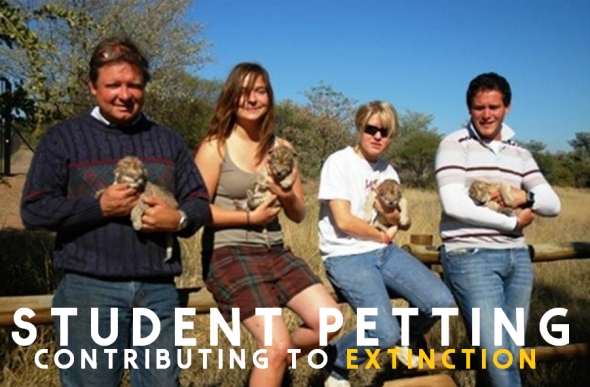
International Animal Rescue Foundation Africa will call this boycott off at anytime should we be provided with the following data.
1. How many cats from the felid family have you bred since founded?
2. How many cubs and other members of the felid family have you sold onto individual buyers, farmers, safaris, and reserves Etc. since founded?
3. To whom have you sold the above animals too under your terms for ECOSCAN? I.e. names of farms, safaris, game reserves, lodges, private hunting services, zoological gardens, individual buyers Etc?
4. Please provide any data to back your claims up that you do not support the slaughter of any animals on your farming lodge?
5. Please provide an explanation as to why you feel its necessary to remove cubs from their mothers when the mothers can rear them quite capably.
6. Are you prepared to allow independent environmental investigation officers to visit your lodge and undertake a TWO YEAR review of your scientific research, monitoring of all captive felids from the hours of 06:00am to 18:00hrs? Monday to Saturday?
7. Do you have any other land or holding facilities that are not mentioned within the public domain?
8. Are you connected to any hunting organisation, safari, reserve or other institution that promotes hunting or sustainable utilization.
STUDENT TOURIST ACCOUNT VIA BLOODLIONS.ORG
British wildlife volunteer, Keeton Hill, shares his experience and findings after his time at Ukutula farm, South Africa.
In 2013 I volunteered at Ukutula, a supposed lion conservation centre outside of Brits, Pretoria, in South Africa. For 6 months afterwards, I spoke of how great the experience was, and about how much good Ukutula were doing. Several weeks after returning from South Africa, I saw a claim that they were involved in the sale of lions for hunting. Initially, I dismissed this claim. However, after seeing more accusations, I decided to do some research to prove these claims wrong. A year and a half later, I am still yet to do so. Instead, I have only seen more and more evidence that I actually volunteered at a farm largely suspected to be involved in the canned hunting industry.
The project was booked through an agency which specialises in volunteering and working abroad. I spent 2 weeks in South Africa looking after lions. At Ukutula, volunteers were told that the lions were removed from their ‘dangerous’ parents, and hand-reared instead for their own safety. We were then told that samples were taken from the 100+ lions on the farm for research purposes, and that where possible, older lions were released into the wild.
During my two week stay, I noted several ways of doing things that I didn’t agree with. For example, there was no permanent staff member in charge of supervising the volunteers who were looking after the cubs. Upon arrival, volunteers were given a brief overview of how to care for them. As of that overview, it was up to the volunteers to decide between them who were to complete what tasks. Any authorisations or approvals were to be sought from the owners, who weren’t always available. This sometimes led to volunteers not knowing how to handle some situations, which then resulted in disagreements between volunteers. For example, some volunteers allowed young children to pet the cubs, whilst others didn’t. Some allowed guests to feed the cubs, others didn’t. There was also an occasion during which the powdered milk supply for the cubs ran out. It was a two hour wait before more was delivered. I also didn’t agree with the cubs being able to be hired for parties and events (which happened several times during my stay). Despite these things, I naively believed everything that we were told about the ‘research’ conducted at the park, and the lion ‘release’ program.
WOULD UKUTULA AND MR STRACHAN PLEASE BE KIND ENOUGH TO PROVE WHERE ALL OF THESE ANIMALS ARE NOW SHOT BY A STUDENT BACK IN 2013 IN THE VIDEO BELOW?
After the accusations against Ukutula were made, and I started my research, it became clear that these claims of releases were simply not true, and that Ukutula was far from what it made itself out to be. I realised that it operated in exactly the same way as canned hunting farms are described as operating. These similarities included a constant stream of cubs being born (there were 9 under the age of 3 months whilst I was there, with more on the way), large groups of tourists petting the cubs throughout the day, walks with older lions, and promises of the eventual release of lions into the wild (of which no evidence has ever been provided).
In order to build up a balanced and comprehensive picture about Ukutula, and find out as much about it as possible, I asked questions to a previous volunteer, a previous member of staff, and the centre’s current owner. I asked both the previous volunteer and previous staff member if they had any reason to believe that the suggestions regarding Ukutula being involved in the canned hunting industry were true. The volunteer told me that they no longer supported the centre, as they had heard several claims that lions were sold from the park (something which the centre themselves later admitted to). The staff member politely declined to comment. I then asked the current owner a series of questions, regarding why they bred so many lions, and when and where their lions are released. I was told that the centre had never claimed to release lions into the wild (which is simply not true, as myself and several other volunteers were told by the centre themselves that they do).
Since this initial realisation, it has only become more and more clear that the Ukutula lies to its volunteers and guests, has never released any lions into the wild, and that they are also more than likely involved in canned hunting. The farm admitted to moving at least 2 lions, Michael and Mandela, to zoos in the United States, and the whereabouts of several lions, such as Kevin, Kylie, Ricky, and Jenny, to name just a few, are now unknown. Attempts at finding out where these lions might be through asking members of the farms staff have proved unsuccessful, always resulting in rudely written replies, which avoid answering the question. For example, when asked the whereabouts of Kevin the lion, an Ukutula employee replied, “none of you(r) damn business”.
When I questioned the farm using an alternative email address to my own, posing as a volunteer interested in working there, they admitted that “lions are relocated in different places”. When I asked, “doesn’t that mean that the people that you send lions to could then sell them onto hunters”, the farm replied that, with a supposed “monitoring system” in the planning, this should mean that they should be “able to react to that”, but “sadly it does not mean there is a 100% guarantee”. I have also since realised that the CITES database shows absolutely no record of any lions being exported from South Africa for release into the wild in any other country. However, what it does show, is mass exports for lion trophies, lion bones, and lion skin.
I have shared my findings and opinions with any volunteers who were at Ukutula with me, and continue to attempt to inform other people who have been to the farm, as well as people that I know personally, about the canned hunting industry. Unfortunately, many previous volunteers refuse to believe about the industry, and defend the farm, often insulting or ignoring the people trying to inform them.
As the canned hunting industry is entirely legal in South Africa, creating awareness and understanding of the industry is vital, as this is one of the only ways to fight against it. The more people who know about canned hunting, the better, as this lessens the amount of unknowing volunteers who believe themselves to be doing good, which then lessens the money that these farms receive. This is why Blood Lions is so important, as it could finally be the large scale exposure of canned hunting that is needed to educate people about the canned hunting industry, as well as maybe even changing the terrible fate of South Africa’s captive-bred lions.
END OF TESTIMONY
One of the most upsetting images is that from 2013 that depicts famous singer Kylie Minouge (pictured below) petting a Cheetah cub at Ukutula that has been removed from its mother (hardly a good example to set to our children or young wildlife conservationists). Many of the students whom travel to work at this Lion and farm lodge are often told that cubs have to be separated from their mothers as the mothers are “allegedly to dangerous” and could attack or do attack the cubs.
This seemingly irresponsible advice comes from a wide range of fake conservationists that work at the facility. One in particular Mr Alan Strachan whom runs the company “Your Cheetah Spot“. Scottish born Mr Strachan that works at the Ukutula Lion and Game Lodge actively encourages people to interact with Cheetah cubs, has been witnessed man-handling the Cheetah cubs, and provides the same excuses as most staff. “The cubs are ill, cannot be released into the wild or are suffering from a wide range of tendon or ligament problems (hence why they can all walk) and look (more than healthy).
If your still thinking on visiting and taking part in the petting of cubs of which you have been told these animals are introduced into the wild. Then ask yourselves this. Why are these animals in the video below that are allegedly “so dangerous” being hand fed, and are more than tame? But more importantly can Ukutula provide evidence to back their claims up that these animals in the video below and depictions above are not dead, or ANY of the females that are sold then bred producing cubs thus not falling under “Ukutula’s ECOSCAN policy” are not then killed for the canned hunting and the trophy hunting industry? Many hunters will try and tell you that this unethical practice is helping to increase populations of Lions. So in that case please do visit the IUCN Red List and look up the Panthera Leo, can you see anywhere in this data that proves such activities are helping Lions or any cat population increases in the wild? OPEN YOUR EYES!
“DON’T BE FOOLED BY CUTENESS OR FOBBED OFF WITH EXCUSES”
Dr Jose C. Depre
Chief Environmental and Botanical Officer.
Chief Executive Officer.
Contributing to Extinction: The Petting Scam.
THE BIG CAT DEBATE PART III
“Conservation is not Petting Cubs or Promoting the Petting Industry”
Over the past week and a half we have been investigating some nine conservation organisations and companies aligned to them organisations within South Africa. As of yesterday we began to make public them questions which were legitimate and fully above board. We have given two related companies known as Your Cheetah Spot and Ukutula Game Lodge over twenty four hours to answer the questions set out here on Facebook within this article. Any professional organisation that isn’t involved within the direct petting or game hunting of threatened species one would then think such questions would quite easily be answerable to place public faith into the domain. Unfortunately within the past hour it seems otherwise.
Your Cheetah Spot a photography and alleged merchandise company, and what appears to be an organisation that is directly aligned with the promotion of petting cubs has not only failed to answer more than straightforward questions, but has evaded them by attacking us with silly nonsense seen hereto. Now we weren’t pointing fingers, nor was we accusing which can be read in all of our posts on Facebook hereto.
While we respect that Your Cheetah Spot is indeed a company their main Facebook imagery and online articles states otherwise. In the image below one can clearly see that the Your Cheetah Spot company is in someway aligned with the recently brought into question Ukutula Game Lodge, that appears to have some two or more Facebook pages online. International Animal Rescue Foundation Africa is a company and not charitable. Meaning that we work for our money. From 2012 to 2015 we have become increasingly suspicions in relation to over ninety South African organisations being “conservation and hunting”.
We equated that over R8.9 BILLION (ZAR) has been pumped into all of the ninety hunting and conservation organisations. However we’ve seen little if any conservation work, reduction in species threat status, reduction in anti poaching or increase of any species they are directly working with in the wild. As we are not a charity but indeed a giver 1/2 of these organisations fell within our (Funding African and Asian Wildlife Survival) program. While we have not provided monetary income to Your Cheetah Spot or Ukutula Game Lodge, we have directly and indirectly promoted their services or organisation[s] (2013-2014). That in turn has technically brought our company into disrepute in regards to malpractice and public misinformation, furthermore it was somewhat more embarrassing that members of the public also pointed this out to us too, and not forgetting some twelve key conservation experts.
The image below shows that both Your Cheetah Spot and Ukutula Game Lodge are related in one way or the other.
Ukutula Lodge does go under other names of Facebook too such as Ukutula Game Lodge Etc. On viewing Your Cheetah Spot company we were somewhat concerned with the vast amount of small cubs that are in our eyes being petted by the public, or by the staff in general from which we believe is at the Ukutula Game Lodge. Please view the images below. Please also note that it has been alleged that some of these animals are “sick and unwell” and cannot be released into the wild. We our now bringing that into question.
The male in the image above is known as a wildlife photographer and conservation researcher, of which he also with his students, friends and family helps at the Cheetah Research Center, while meeting up with members of the public at the Ukutula Game Lodge or Ukutula Lodge. When putting questions to Scottish born Alan Strachan and the user on the Your Cheetah Spot Facebook page we was then made aware of the current unprofessional behavior of Ukutula Game Lodge. Its at this very lodge that our suspicions have yet again arisen, of which you can view in the images below.
Interestingly when viewing more data on Ukutula Game Lodge we were somewhat perplexed as to how many big cats this farm is currently holding of which it states “is research”. Even more worrying is that the vast majority of these cats are/or were all cubs, all of which are being bred on a “game farm”. Please view the data below.
Now just to remind the millions of readers that tune into our environmental investigations news site what a game farm is, we have made it very simple to read and understand for you to come to your own conclusions. Please see the image below.
A further suspicion that was then immediately raised by the External Affairs investigative team was the vast majority of friends on Mr Strachan’s Facebook friends list that are all (holding or petting) cubs, yet there seems to be no mothers in sight, please see the image below.
The list is pretty endless of which you can view more here
Any good professional conservation teacher, conservation organisation, research center, or reserve would not under any circumstances allow the direct petting of any big cat cubs. The potential for virus and disease to emerge and not forgetting the removal of the cats natural hunting instincts would severely be detrimental to the animals health. So on viewing the two parties being that The Ukutula Game Lodge and Your Cheetah Spot company that boasts years of experience then why are we seeing such behavior? Furthermore on questioning Your Cheetah Spot company they categorically stated that they hadn’t released any animals in to wild since [2007]. Yet they also stated to the CEO that they were just a simple photography and gift company.
International Animal Rescue Foundation Africa asked some nine very basic and straight forward easy to answer questions. The organisation has waited and waited, the questions were stern but not abusive. However it would appear that on asking such straightforward questions “Your Cheetah Spot company” has not only become abusive but have shown just how hateful of homosexuals they are (again clutching at straws and trying to turn the table onto us). See the screen shots below.
So when basic very polite questions are asked not only are we spat at with trolling nonsense from hunters and deluded pseudo activists whom have created these articles in the image above, the Chief Executive Officer is then spat more abuse at insinuating that he is gay and obviously goes under many other names too. And as yet, still there is no answers to our questions.
Linda whom runs the Facebook page Your Cheetah Spot stated that the vast majority of these animals cannot be released back into the wild. The kind lady also stated that many animals are sick or injured. Furthermore Linda stated that there is not enough room to simply release Cheetahs back into the wild within South Africa. As a more than competent and professional environmental company there is room, and there are also many active reintroduction programs over the border. In our own opinion these animals are not being released as then that would mean a loss of revenue. Furthermore if these animals are being bred for science, what happens to them after the research is up. Lastly as you may all remember Cecil? Cecil was one of many Lions that the Oxford University Lion Research Center studied, oddly IN THE WILD!
Reintroduction programs have been very operational within Swaziland for some years. Furthermore South Africa is not detached from the continent. Bordering you have Botswana, Namibia, Zimbabwe, Mozambique and finally Lesotho with Swaziland in the far right. So the excuse that these “many small cubs” that are new born and are most certainly not sick, old, injured (in most cases) cannot be reared in accordance to a professional captive breeding program is utter nonsense. Just to remind you - Linda whom is aligned with the You Cheetah Spot company stated that the last release was back in 2007 of any Cheetahs which we do believe was in the KWN.
A further concern is that Linda stated Alan Strachan (experienced photographer and author) has many contacts within the Cheetah Breeding theater, see image below.
The comment above is just a contradiction of what is being viewed at the Ukutula Game Lodge of which Alan Strachan visits regularly such as “you have to make sure that there is very little contact with humans” “The last prey release was back in 2007”. If these contradictions do not spring up red flags to you then they should. Swaziland has been the center for many Cheetah releases over the years as listed on the International Union for the Conservation of Nature’s website. Furthermore the sheer fact that in the vast majority of Mr Strachan’s images on his Facebook profile that depict “cub petting” and on their very own Facebook page is also somewhat concerning.
THE LIES BREEDING AND RESEARCH CENTERS TELL YOU
Below is a list of common lies or misinformation breeding, research and farming centers will try their utmost best to tell you. However at the end of the day its down to you to undertake your own research. Why are there so many cubs, why have there never been any releases of animals into the wild, why are there never no mothers seen with the cubs, why did the breeder or the supporter of a breeder state that these animals cannot be released back into the wild in South Africa..The simple answer to that question would be (mass loss of profit). Again we’re not putting words into your mouths, we are though asking you to please open your eyes, question, look around.
Breeders who charge the public to pet and take photos with young tiger, lion, cheetah or leopard cubs tell venues and customers some or all of the following ‘misinformation which is’:
1) That the exhibitors are “rescuers” and operate “sanctuaries”
2) That the cubs have a good life while being used to make money:
a) They enjoy being carted around the country in a semi and repeatedly awakened and handled by dozens of people all day
b) That blowing in the cubs face “calms” them down
c) That dangling them by holding under their front arms and bouncing them up and down “resets” them cubs at the mall
Cubs at the mall always = cub abuse
d) That close up photos with flash does not harm the cubs
3) That it is safe for the cubs and for humans, and legal, to allow contact with cubs from when they are only a few weeks old to when they are six months or more old.
4) That the exhibitor must keep constantly breeding and using the cubs to make money because that is the only way he can support the adult animals he keeps.
5) That the exhibitor is doing this to promote conservation in the wild.
6) That the exhibitor is teaching people not to have exotic animals as pets
And the biggest lie of all:
7) That the cubs will have good homes after they get too big to be used to make money from petting.
The images and evidence that is seen on one of the nine alleged conservation organisations that are either directly or indirectly involved in the promoting of petting or in this case “science and research”. Have shown little evidence of anyone of these animals actually being released into their native wild.
We DO NOT buy the excuse that states there is little room in South Africa to release these animals back into their native wild. Africa is a continent and South Africa is most certainly not detached from neighboring countries. South Africa borders Botswana, Namibia, Zimbabwe, Mozambique, Lesotho and Swaziland. Swaziland is one country of particular interest as many Cheetah reintroduction programs are happening within this country. The Cheetah Spot company also made public that Mr Strachen has many contacts with “Cheetah breeders” so why are we not seeing reintroduction, but more ‘petting’ of which these images are directly promoting the petting industry which in turn directly promotes the canned and non-canned hunting industry.
If you would like to know more about felid petting one can view the link here supplied by the Big Cat Rescue.
So as our questions haven’t been answered then we’ll reprint them here in a more orderly and professional fashion. On hitting the publish button the news letter will be sent to over 2,000 subscribers and over 6.1 million supporters respectfully.
- What relation does Mr Strachan and Your Cheetah Spot company have in relation to the Ukutala Game Lodge?
- Why are there so many cubs being shown on the Ukutala Game Lodge and Your Cheetah Spot company that are not unwell but more than healthy?
- Why are there so many cubs with no mothers being petted at the Ukutala Game Lodge, and where are their mothers?
- What happens to the cubs being shown on the Your Cheetah Spot company and Ukutala Lodge when you have reached maximum holding capacity?
- From reading, Your Cheetah Spot company states its nothing more than a photography and merchandise company. The company stated that they have only managed to release some Cheetahs into the wild back in 2007. So from 2007 to date you’ve obviously been in contact with more cubs, so how many animals are you holding on this farm, and where are the excess going too, one cannot just continue breeding and not releasing they are obviously going somewhere?
- Are you Ukutula and Your Cheetah Spot company involved in game or canned hunting?
- Why are you “Your Cheetah Spot” company directly encouraging through photography the petting industry but then contradict yourselves by stating that these animals must have the bare minimal human contact?
- Are both Your Cheetah Spot company and Ukutala Game Lodge aware of the health implications to these animals via the direct handling, man-handling and petting of cubs and elders?
- Why does the Your Cheetah Spot company that stated 1. They are just a merchandise company then 2. agreed they are working directly with these animals believe that South Africa is the only country that these animals can be released into?
- Will you Your Cheetah Spot company and Ukutula Game Lodge make public the amount of animals that you have allegedly helped, released into the wild and how many have been deliberately bred?
- Why when questioned did you not answer the questions highlighted but then some 14 hours later placed untrue, derogatory and misleading data into the public domain asking people to share. When all we did was obtain the information from your own sites, your own staff, friends and online data? No professional organisation or individual would behave in that manner?
- How much money are Your Cheetah Spot Company directly making from petting big cats and cubs?
- How much money are Ukutala Game Lodge making from the direct petting of big cats and cubs, and where is this money going too. Why are you also promoting the “interaction with very healthy cubs” to foreign tourists of which is commonly known as a “Lion Petting Farm aka Hunting Industry”?
The next time you want to abuse us you may want to remember that we are not propagating misleading lies about you. The data above has derived directly from you. All we have done is placed that all together, reviewed it and come to the conclusion that from questions 1-13 both of you are in some way directly involved in the petting industry which has direct relations to the hunting industry.
For now we’re going to leave our concerns at this. We will though be going through all organisations and individuals aligned with us and, if found to be exploitation any animals will be removed and exposed by us. Lastly when you have emigrated to our country please respect our natural heritage.
External Affairs Department
externalaffairs@international-animalrescue-foundation.org.uk
Environmental and Animal Abuse Investigations Authority Europa.
EXTERNAL AFFAIRS HEAD OFFICERS:
Jose C. Depre: Chief Executive Officer.
Johan Le roux: Anti Poaching / Illegal Animal Parts Trade Head Investigator.
Michal Jooste: Endangered Species Watch.
Pitier Van rens den: Chief Environmental Officer and Emergency Rescue.

